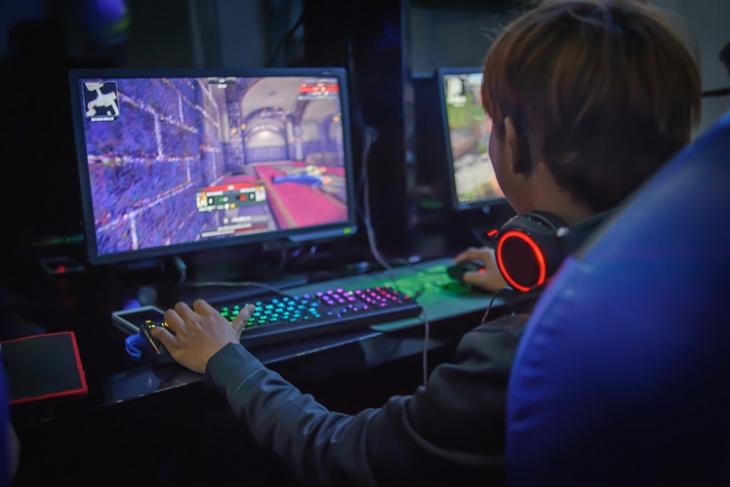Introduction
The world of gaming is on the cusp of a technological revolution with the integration of artificial intelligence (AI) in online game design. As a competent SEO and senior copywriter, I will explore the exciting possibilities that AI brings to the gaming industry. With advancements in machine learning and data analysis, AI has the potential to revolutionize game development, player experiences, and the overall landscape of online gaming. Join me as we delve into the future of gaming, where AI takes center stage. The voj8 online gaming adventures are filled with memorable moments and exciting quests.
AI-Powered Game Design
Procedural Content Generation
One of the significant advantages of AI in game design is procedural content generation (PCG). AI algorithms can dynamically generate game content, including environments, characters, quests, and even entire worlds. This ability to create vast and diverse game universes enhances replayability and provides players with unique and immersive experiences.

Adaptive Gameplay
AI-powered game design enables adaptive gameplay, where the game adjusts itself based on the player’s actions and preferences. Through machine learning algorithms, games can analyze player behavior, adapt the difficulty level, and provide personalized challenges. This dynamic approach ensures that players are consistently engaged and challenged, catering to their individual skills and playstyles.
Intelligent NPCs and Enemies
Non-playable characters (NPCs) and enemies play a crucial role in gaming experiences. With AI, these virtual entities can exhibit enhanced intelligence and realistic behaviors. AI algorithms can enable NPCs to make informed decisions, learn from player interactions, and even develop their personalities. This creates more immersive and interactive game worlds, where players can engage with intelligent and lifelike virtual entities.
Player Experience and Personalization
Enhanced Realism and Immersion
AI-powered technologies can significantly enhance the realism and immersion of gaming experiences. Advanced graphics rendering, physics simulations, and natural language processing enable more lifelike environments, realistic physics interactions, and dynamic storytelling. Players can feel more connected to the virtual worlds, blurring the lines between reality and gaming.
Personalized Gameplay
AI algorithms can analyze vast amounts of player data, including gaming preferences, behavior patterns, and skill levels. With this information, games can provide personalized experiences tailored to each player. From adaptive difficulty levels to customized storylines and quests, personalized gameplay ensures that players feel a sense of ownership and engagement, leading to more satisfying experiences.
Intelligent Assistance and Guidance
AI-powered game assistants can provide intelligent guidance and assistance to players. These virtual companions can offer in-game tips, suggest strategies, and provide real-time feedback to help players improve their skills. Additionally, AI-powered chatbots and voice assistants can offer support outside of the game, answering player queries and providing relevant information.
The Future Landscape of Gaming
Procedural AI-Generated Worlds
In the future, we can expect AI-powered game design to create expansive and intricate virtual worlds. Procedural AI-generated worlds will offer limitless possibilities, with dynamically changing landscapes, ecosystems, and civilizations. Exploring these AI-created universes will provide players with endless adventures and discoveries, creating an unprecedented level of immersion and engagement.
Interactive and Emotional AI
Advancements in AI will enable interactive and emotionally intelligent virtual entities. NPCs and characters will possess complex emotional responses, allowing for more meaningful interactions and realistic storytelling. AI algorithms will recognize player emotions and adjust the game’s narrative, pacing, and challenges accordingly, creating deeply engaging and emotionally resonant experiences.
Seamless Multiplayer Integration
AI-powered technologies will revolutionize multiplayer gaming, facilitating seamless integration and interaction between players. AI algorithms can analyze player preferences, playstyles, and skill levels to create balanced and enjoyable multiplayer experiences. Additionally, AI-powered matchmaking systems will ensure fair and engaging matchups, enhancing the overall multiplayer gaming landscape.
Conclusion
The future of gaming is undoubtedly intertwined with the vast potential of artificial intelligence. From AI-powered game design and procedural content generation to personalized gameplay experiences and emotionally intelligent virtual entities, AI will reshape the gaming industry as we know it. The integration of AI technologies will unlock new levels of immersion, realism, and engagement, offering players unparalleled adventures and challenges. As we embrace the future of gaming, we can anticipate a world where AI-driven experiences redefine the boundaries of interactive entertainment.

Leave a Reply